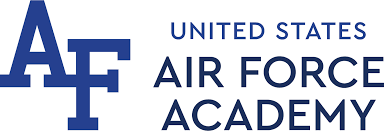Creating a Culture of Character Growth: Developing Faculty Character and Competence at the United States Military Academy
DOI:
https://doi.org/10.58315/jcld.v10.275Keywords:
Character, Virtue Formation, Faculty Development, Higher EducationAbstract
Background: Institutions of higher education, specifically service academies, interested in developing character in their students/cadets should consider creating a culture of character growth to accomplish their task. One potential way to do this is to focus on developing faculty character along with character competence as it relates to student/cadet character formation.
Objective: At the United States Military Academy, we recently piloted a character faculty development series for Center for Enhanced Performance faculty aimed at improving faculty character formation, increasing faculty competence with respect to developing cadet character through one-on-one relationships, and integrating character formation into their teaching. The goal of this project was to assess feasibility and acceptability of the series.
Methods: The Center for Enhanced Performance faculty experienced a three-part character faculty development series: (1) Faculty character formation, (2) Developing cadet character through one-on-one relationships, and (3) Integrating character into the classroom. To assess feasibility and acceptability of the series, a survey was sent to faculty after completion.
Results: A total of nine faculty members completed the survey and found the training worthwhile, that it increased their confidence in developing cadets’ character and integrating character formation into their teaching, along with each character formation tool being useful.
Conclusions: Character faculty developing series should be tried and can be feasible and acceptable to faculty.
Downloads
References
Allman, K. R., Maranges, H. M., & Lamb, M. (2023). Exploring character in community: Faculty development in a university-level community of practice (Manuscript submitted for publication).
Bok, D. (2020). Character: Can colleges help students acquire higher standards of ethical behavior and personal responsibility? In Higher expectations: Can Colleges teach students what they need to know in the 21st century? (p. 58). Princeton University Press.
Erbe, R. G., Konheim-Kalkstein, Y. L., Fredrick, R., Dykhuis, E. M., & Meindl, P. (2023). Designing a course for lifelong self-directed character growth (Manuscript submitted for publication).
Jubilee Center for Character and Virtues. (2020). Character education in universities: A framework for flourishing (pp. 1–12). Jubilee Center for Character and Virtues.
Lamb, M., Brant, J., & Brooks, E. (2021). How is virtue cultivated?: Seven strategies for postgraduate character development. Journal of Character Education, 17(1), 81–108.
Locke, J. (1968). Some thoughts concerning education. In J. L. Axtell (Ed.), The educational writings of John Locke (pp. 114–325). Cambridge University Press.
McGovern, T. V. (2011). Virtues and character strengths for sustainable faculty development. The Journal of Positive Psychology, 6(6), 446–450. https://doi.org/10.1080/17439760.2011.634822
McGovern, T. V., & Miller, S. L. (2008). Integrating teacher behaviors with character strengths and virtues for faculty development. Teaching of Psychology, 35(4), 278–285. https://doi.org/10.1080/00986280802374609
Roche, M. (2009). Should faculty members teach virtues and values? That is the wrong question. Liberal Education, 95(3), 32–37.
Tang, Y.-Y., Hölzel, B. K., & Posner, M. I. (2015). The neuroscience of mindfulness meditation. Nature Reviews. Neuroscience, 16(4), 213–225. https://doi.org/10.1038/nrn3916
United States Military Academy. (n.d.). About West Point. https://www.westpoint.edu/about
United States Military Academy. (2020). The USMA strategy (pp. 1–24). United States Military Academy.
Published
How to Cite
License
Copyright (c) 2023 Ryan Erbe, Darcy Schnack, Peter Meindl

This work is licensed under a Creative Commons Attribution 4.0 International License.
Authors contributing to Journal of Character & Leadership Development agree to publish their articles under the terms of the Creative Commons CC-BY 4.0 License. Authors retain copyright of their work, with first publication rights granted to the JCLD.



